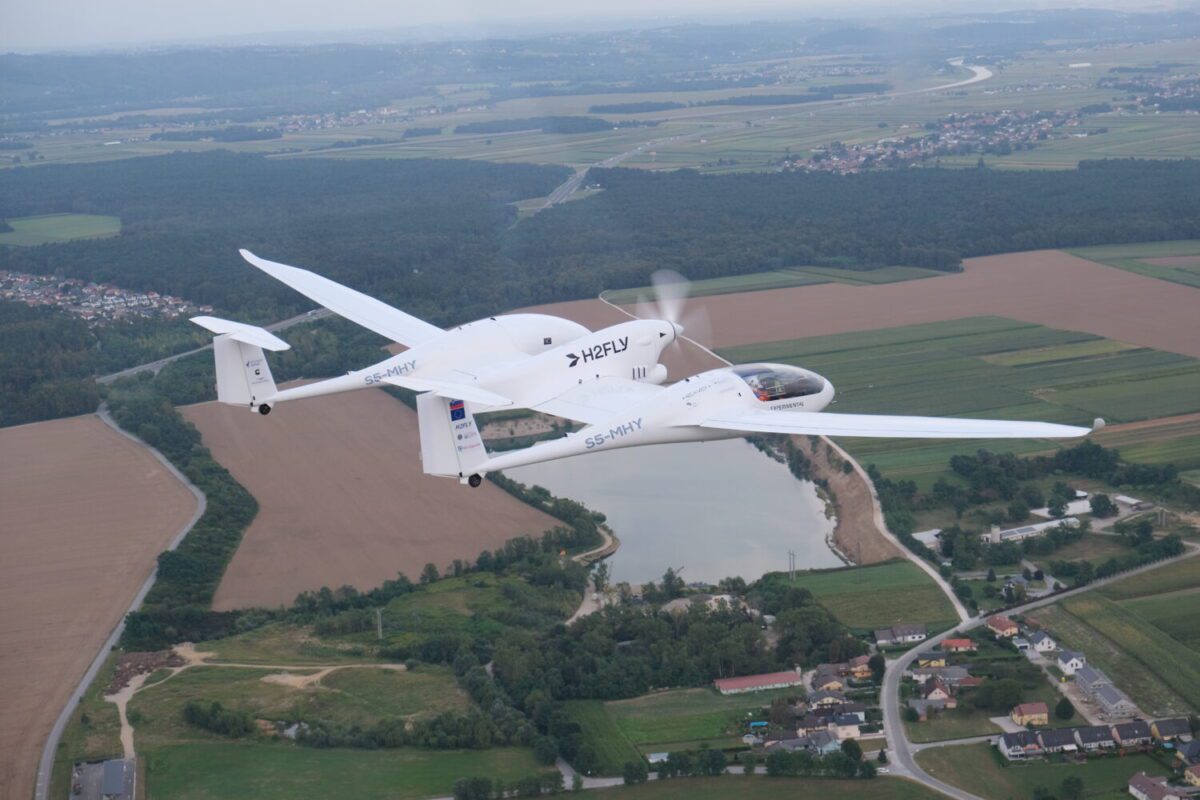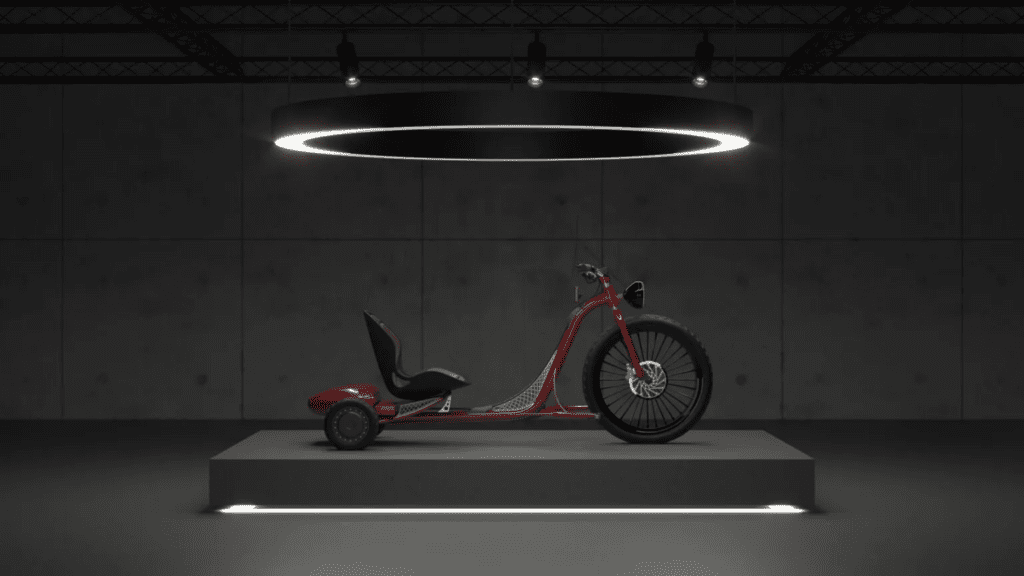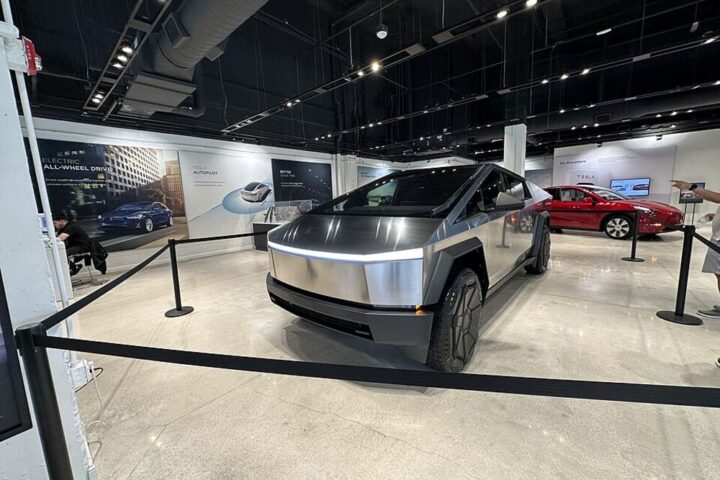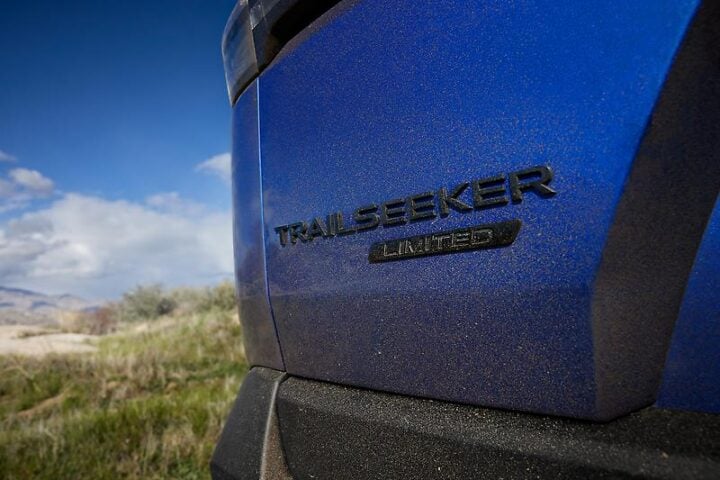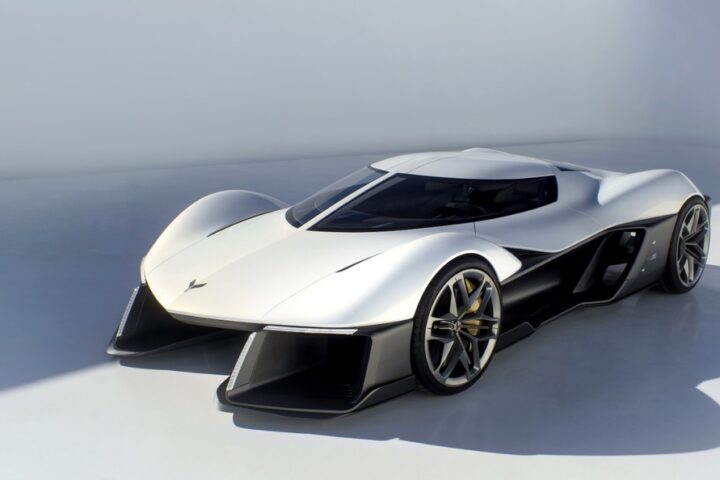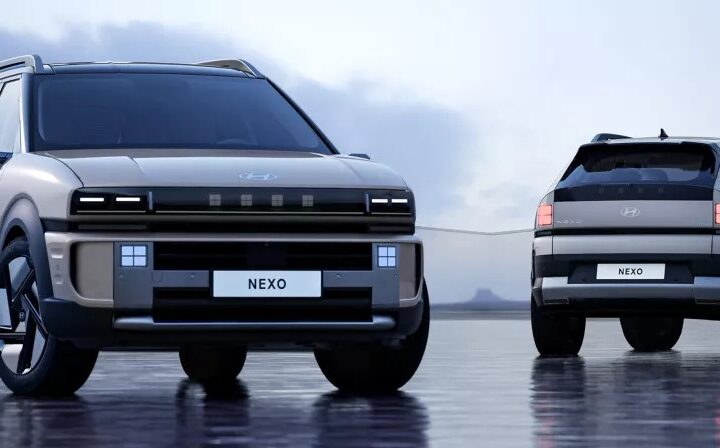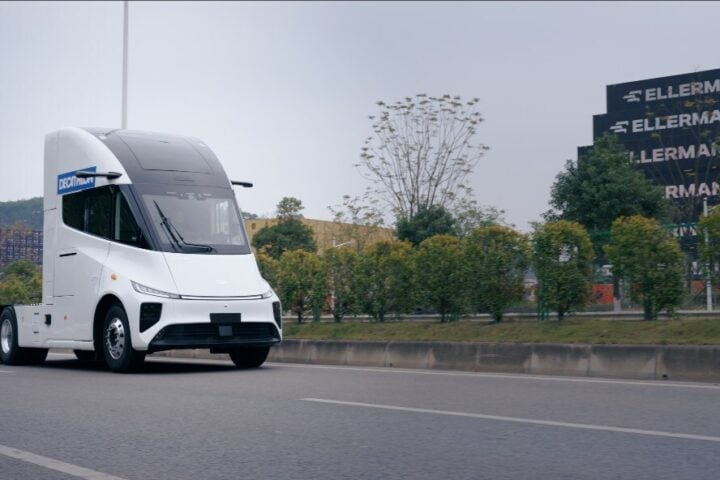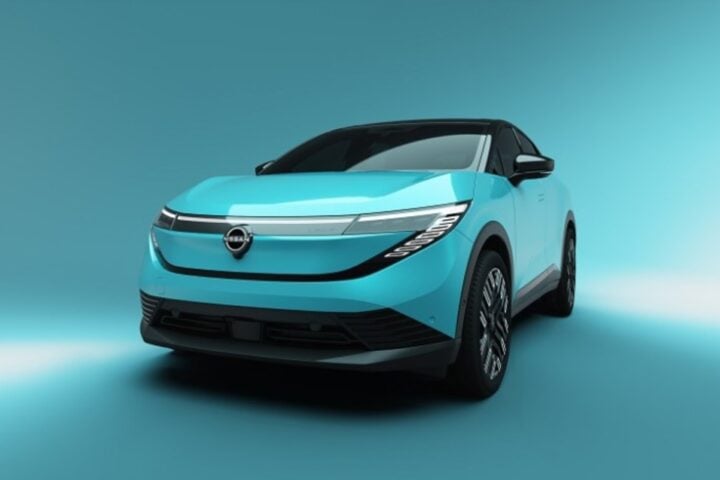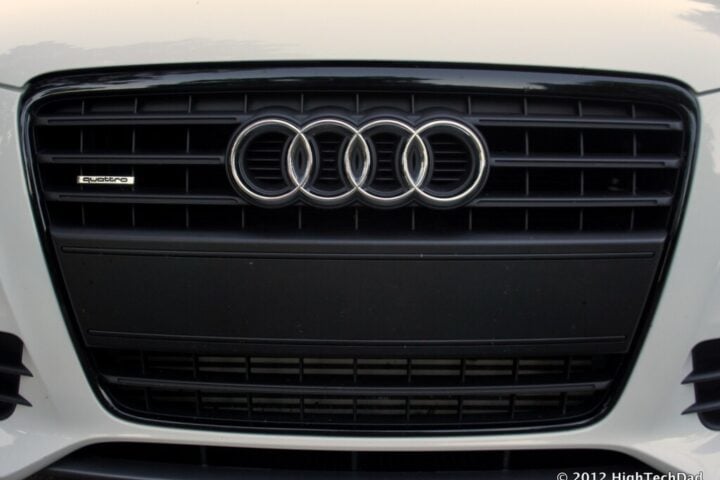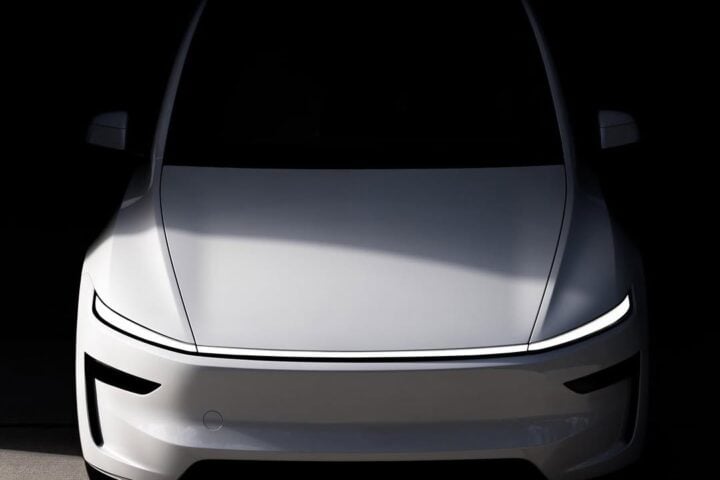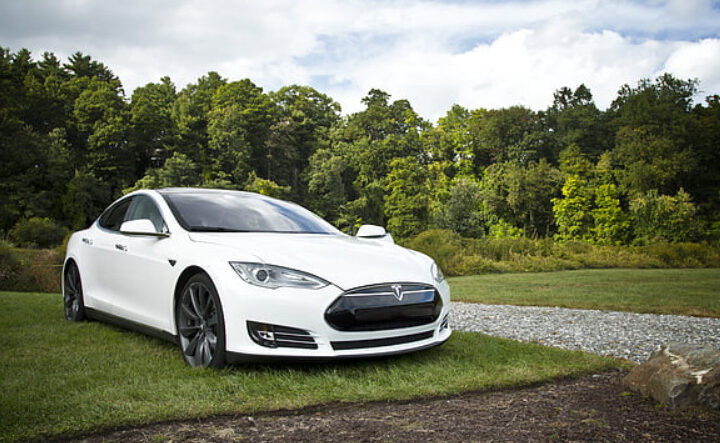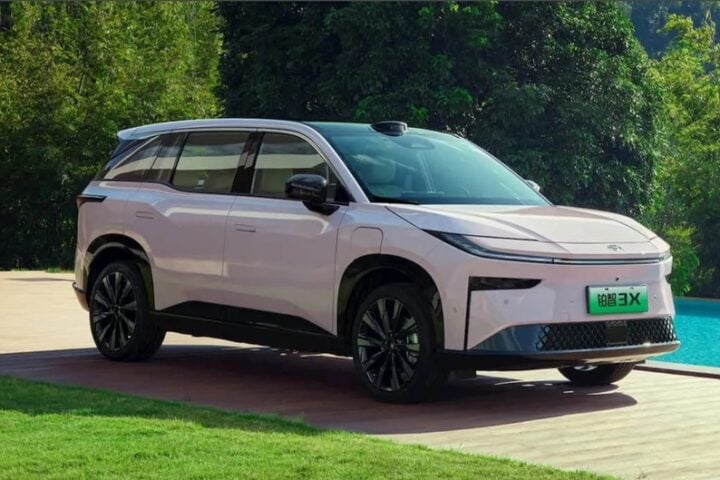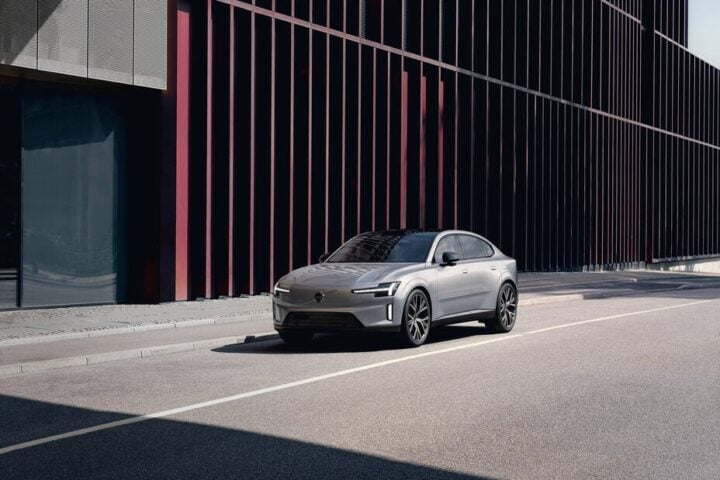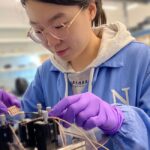H2FLY, a subsidiary of Joby Aviation, has successfully completed the world’s first piloted flight of a liquid hydrogen-powered electric aircraft. This groundbreaking achievement marks a significant step towards the long-term decarbonization of mid- to long-range aviation. The HY4 demonstrator aircraft, developed by H2FLY, was at the forefront of these test flights. One notable flight lasted over three hours, powered entirely by a hydrogen-electric fuel cell propulsion system and liquid hydrogen.
Cryogenically-stored liquid hydrogen offers advantages over gaseous hydrogen, including reduced tank weights and volume. This technological shift has the potential to double the HY4’s flight range from 466 mi (750 km) to 932 mi (1500 km). “H2FLY are pioneers in their field, and we’re proud of them achieving this watershed moment in the use of liquid hydrogen to power aircraft,” stated JoeBen Bevirt, Founder and CEO of Joby Aviation. Bevirt envisions a future where battery-electric and hydrogen-electric propulsion systems enable quieter, zero-emission mid- to long-range air travel.
The successful flights were part of Project HEAVEN, a European-government-backed initiative to explore the feasibility of liquid hydrogen in aviation. Key partners in the consortium include Air Liquide, Pipistrel Vertical Solutions, the German Aerospace Center (DLR), EKPO Fuel Cell Technologies, and Fundación Ayesa. H2FLY’s next steps involve a keen focus on commercialization and the development of new fuel cell systems. These systems are designed to operate at high altitudes, paving the way for commercial hydrogen-electric aircraft applications.
H2FLY’s recent achievements have been hailed as a major milestone in the realm of zero-emission long-distance flights. The Stuttgart-based company, H2FLY, specializes in hydrogen electric aviation technology, particularly liquid hydrogen. Joby Aviation, an eVTOL developer, acquired H2FLY in 2021, further bolstering its capabilities. H2FLY’s HY4 hydrogen electric aircraft first took to the skies in 2016 and set a world record in 2022 by reaching altitudes over 7,000 feet during a 77-mile journey across Germany.
With nearly a decade of experience, H2FLY has secured financial backing from several German ministries and the Project HEAVEN consortium. The recent piloted flight showcased the potential for longer flight ranges and increased payloads. The HY4 demonstrator electric aircraft’s recent tests included four separate flights, marking the first time it was piloted by a human. Instead of using pressurized gaseous hydrogen storage, the aircraft utilized cryogenically stored liquid hydrogen. “This achievement marks a watershed moment in the use of hydrogen to power aircraft,” commented H2FLY cofounder Professor Josef Kallo.
Kallo envisions scaling up the technology for regional aircraft, emphasizing the mission of decarbonizing commercial aviation. H2FLY’s upcoming H2F-175 fuel cell systems are expected to power aircraft to altitudes of up to 27,000 feet. The company’s future endeavors will be centered at the new Hydrogen Aviation Center at Stuttgart Airport, slated to open next year. The HY4 aircraft’s recent demonstration took place in Maribor, Slovenia, lasting around 10 minutes. One of the test flights consumed just 10kg of the available 24kg of hydrogen and lasted over three hours.
Similar Post
Liquid hydrogen’s higher energy density allows for more storage onboard, compared to its gaseous counterpart. “The achievement marks a watershed moment in the use of hydrogen to power aircraft,” reiterated Prof. Josef Kallo. The HY4 aircraft’s 120kW PEM fuel cells utilize excess heat to evaporate the liquid hydrogen, powering the system. Pierre Crespi, Innovation Director at Air Liquide Advanced Technologies, expressed pride in the project, highlighting the potential of liquid hydrogen for aviation.
While the HY4 won’t enter commercial operations, its liquid hydrogen powertrain system might revolutionize commercial hydrogen-powered flight. In June 2023, H2FLY announced plans to develop a next-generation fuel cell system capable of powering 40-seater aircraft. The HY4’s development was supported by the EU-backed Project HEAVEN, with contributions from several aviation specialists. Dr. Syed Asif Ansar of DLR described the flight as a “significant present achievement in aviation history.” The HY4’s utilization of cryogenic liquefied hydrogen as fuel storage for a four-seater aircraft was particularly noteworthy.
The HY4 project received funding from various German ministries and the University of Ulm. The aircraft’s liquid hydrogen storage system, developed by Air Liquide, played a crucial role in the successful flights. H2FLY’s vision is clear: to lead the way in hydrogen-powered aviation, ensuring a sustainable future for the industry. With the backing of industry giants and a clear roadmap, H2FLY is poised to redefine the boundaries of aviation.
